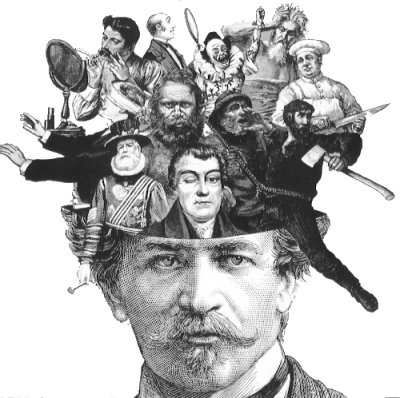Great-Grandchildren
Today, you and I are kin. The University of Houston's College of Engineering presents this series about the machines that make our civilization run, and the people whose ingenuity created them.
A while back a friend got deeply into genealogy. One day he pulled out some papers that showed he was related to Charlemagne. I allowed that was very impressive. Now I've just read an article in the magazine The Sciences, and guess what! I am also kin to Charlemagne. And so are you.
Each generation back, the number of your great grandparents doubles. The length of a generation can be variable. For most cultures, thirty years would be a conservatively long generation. Charlemagne lived in the late eighth century, about forty generations ago. To count how many progenitors you had in the late eighth century we raise two to the fortieth power. That gives about a trillion. The problem is, that's at least a thousand times more than the world population was in AD 800.
"How can that be?" you ask. Easy enough. Charlemagne was almost certainly your grand-parent many times over. Subsequent generations were almost all cousins, albeit many times removed.
Now, while you can safely bet that you're related to Charlemagne, there remains a very slim chance that you're not. So let's go back further. Cleopatra lived some 67 generations back. The number of your grand-parents that long ago was many trillion times larger than the population of Earth. Follow your maternal grandfather's lineage, and your paternal grandmother's, and you'll soon enough run across increasing numbers of the same people -- like Charlemagne -- as you move backward in time.
Now go all the way back to early modern humans, 30,000 years ago when Earth's population was very sparse. The number of your forebears is so vast as to be beyond my calculator's ability to show it to me. Each of those ancient beings had to've been your grandparent an uncountable number of times over. We needn't go anywhere near that far back to be certain of our relationship to Confucius, Alexander the great or King Tut. Every Viking woman and medieval African chieftain, every early Mongol mother and Australian bushman would turn up over and over in your family tree.
When we've finished this exercise, racism becomes no more than a bad joke. The idea that I am not black, and that Marian Anderson was not white, becomes ridiculous. After not-too-many centuries, we all share the same forebears. Actually, it'd be more accurate to say that the concept of race itself is the bad joke.
The genetic implications are vast. We're a single species with far less genetic diversity than we'd assumed. As the number of our progenitors fans outward into the past, and the actual population shrinks, we reach Africa some 4000 generations ago. The number of the first modern humans appears to've been only a few thousand.
We thus come quite close to being the children of an ancient Eve and Adam. Our vast uncountable army of forebears all converge upon that small band of early human ancestors who spread out, first across Europe and Asia, and then over the entire world.
I'm John Lienhard, at the University of Houston, where we're interested in the way inventive minds work.
(Theme music)
Berlin, A., Kissing Cousins. The Sciences, Sept./Oct. 1999, pg. 9.
One thing I assumed was obvious in wording this episode is that only those people who parented a child are anyone's grandparents. I should, perhaps, have noted that all humans who died before they reached sexual maturity are excluded as are about twenty percent of adults who have lived and not parented a child.
